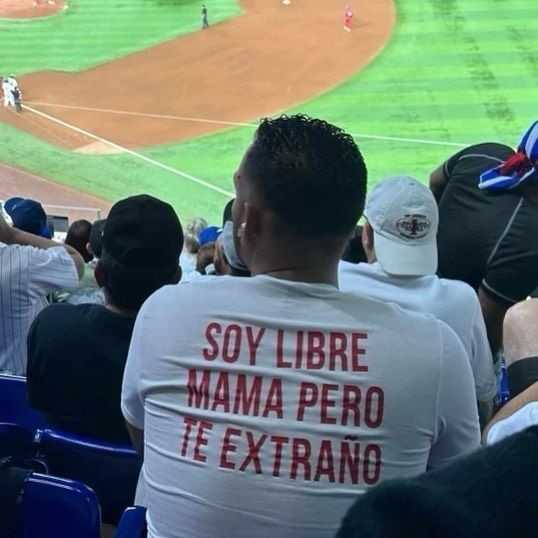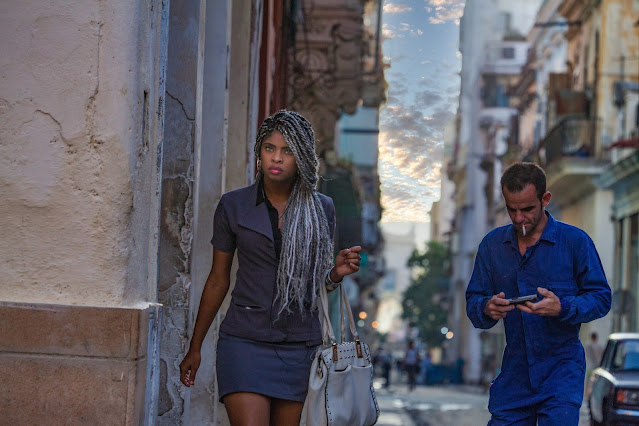My Cuban-American Story with Deep Little Havana Roots
Like many Cuban exiles, my grandfather had no choice but to leave his beloved native Cuba behind. As a member of former President Batista's military police, my Abuelo's only fate should he stay was Execution by Firing Squad. As conveniently pointed out here on Wikipedia, "during the months following the triumph of the Cuban Revolution in 1959, soldiers of the Batista government were executed by firing squad." But these firing squad executions didn't just occur during those early months following the revolution. They were Castro's preferred form of Capital punishment allowable by their National laws until 2003 for their alleged crimes of "murder, threats to commit murder, aggravated rape, terrorism, hijacking, piracy, drug trafficking, and manufacturing, espionage, and treason." In 1964, at just 15 years old and freshly recruited to the Cuban military, my future father-in-law would be assigned to carry and transport the dead bodies that fell to the ground after these executions. There were no other options for my Abuelo so naturally, he fled Cuba as quickly as he could and by the skin of his teeth too. Castro's men came looking for him at his home just after he left on his boat with one of his four brothers, Rene (and fellow military policeman), and my abuela's brother, "Tata." I'm so grateful that God and my Abuelo's Guardian Angels had other plans for his fate, for they must have known I would need to be born one day. When he left that day, he never ever imagined that he'd never return to his beloved homeland of Cuba. His time spent in the safety of the U.S. was only temporary, he thought. This was the sentiment shared by all Cuban exiles at that time.
As time passed, he quickly put into action a family reunification plan that would in five short years bring nearly all of his and his wife's family to the U.S. We were among the lucky ones, but the pain of betrayal from his beloved country - the country he served and loved with all his heart - never ever left my Abuelo's soul. Like most Cuban exiles, this betrayal broke his heart until the day he died. Along with a broken heart came a new allegiance to a new country - to the beautiful U.S.A. In his eyes, he was now a proud American. It was the U.S. flag that he now always proudly hung on his fishing boat and outside his home in La Pequena Habana.
Soon after he arrived he bought himself a fishing boat to not only make his new living in this new country but to one day return and/or bring every single relative he could to the U.S. For whatever reason, he didn't travel by plane. Considering the fact that, between he and his wife, they had more than 20 siblings, this was no easy feat. My mother, uncles Rafael ("Tuna" the future hometown Miami High Basketball star) and Jorge ("Coqui"), and grandmother Mercedes arrived with a Visa in 1960 via the Key West ferry from Cuba. My grandfather's brother "Henry" had already fished his way to Key West where he settled. Tio Negro, the youngest of the brothers, fished his way over too. One by one each family member arrived mainly by boat or with Visas until 1965 when their remaining family members arrived on the Freedom Flights, Los Vuelos de la Libertad. From 1965 to 1973, two flights each day transported Cuban families to the U.S. Those flights brought more than just Cuban families though; it brought the Cuban exiles the dreaded confirmation that a return to Cuba may never occur. By that time, all efforts to overthrow Castro had been unsuccessfully exhausted. By the late 1960s, my Abuelo Chiche (as they called him) had achieved the American Dream. He owned a home. He and my grandmother owned several businesses. He was a fisherman for the better part of 35 years. My grandmother credited herself as being the first Cuban woman in exile to own her own business: making Mosquiteros or mosquito nets for baby cribs. But the best part of his American dream was something that not too many Cubans were fortunate enough to have. The majority of his huge Cuban family were all living in Miami including his mother, my Abuela Juana or Abuela Biejita as we called her, who lived less than a block from his house until the day she died in 1996 at a remarkable 98 years of age.














Love you michi the Oliva story
ReplyDeleteThank you again for sharing such a great family story. Abuelo & Abuela would be proud of you like they always did. ❣ Love Tata
ReplyDelete